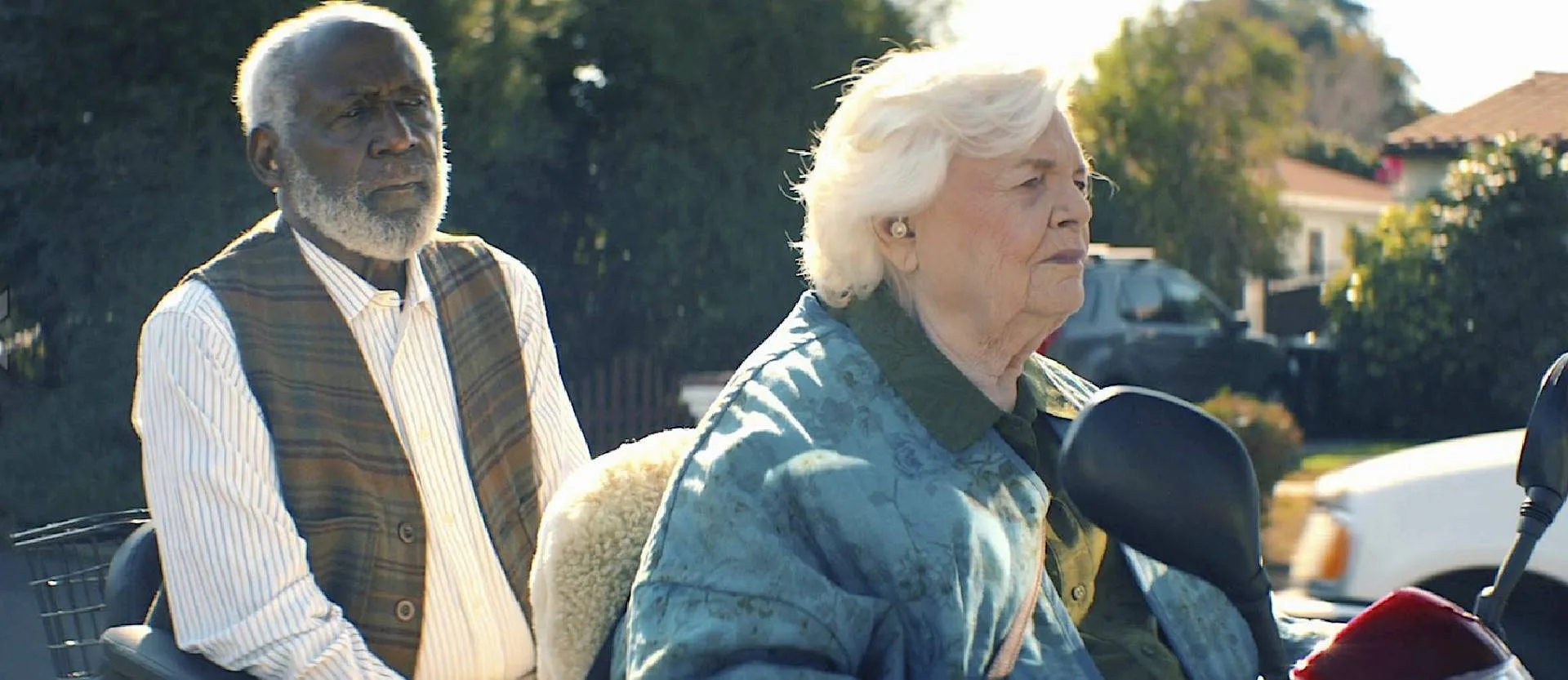★★★ The girl with the needle, Endless crises for a woman at the bottom of life Director Magnus von Horn's interest in social issu
★★★ The girl with the needle,
Endless crises for a woman at the bottom of life
Director Magnus von Horn's interest in social issues led him to write this murky scenario about the desperate situations that the film's heroine goes through successively from the beginning of the film until a few minutes before its end. Previously, he had not been concerned with societal issues in “Here After,” “Sweat,” and “Without Snow,” but none of his films had ever been distinguished by the amount of melancholy that he brings in his film. New.
Caroline (Vic Carmen Son) is a needy woman who works in a textile factory. She lives in an apartment and her husband is absent and there is no news about him. The events take place immediately after World War I. She does not know that her husband is actually still alive and is having an affair with a prosperous man who owns a factory, and now she is pregnant from him. Suddenly her husband appears with a leather mask covering his disfigured face. She expels him from the house, hides from her lover the return of her husband, and asks him to marry her. He agrees but his mother kicks her out. This first half of the film is very murky, but the second half is even more miserable. After many hardships, she gives birth to her child and then gives him to a child trafficker. These include children that mothers do not want to keep and kill later. Among them is Caroline's child, from where she does not know at first.
It follows tragedies and crises, financial, emotional, and physical. The film does not turn into one of those melodramas, even though, at times, it becomes more hard for the viewer to bear due to its many tragedies. What prevents it from falling apart is the good performance of actress Carmen Son and the fact that the director links her story closely with the society in which the events take place. It provides a harsh look at what the situation was like in Copenhagen and what the lives of its needy were like, although it specializes, depending on its subject, on women in this context.
The picture he paints of the streets, houses, and alleys, and those that stigmatize the characters surrounding his heroine, escalate the cruelty of the present situation. In addition, this is a black and white film intentionally and intentionally, which makes the film devoid of connotations that a color film can suggest. Black and white (and black here is more prominent in the photography) suits the melancholy of the story and the life of its heroine.
There is an insistence on the part of the director to tell a story in which there is no hope (except in the last minutes) in a period when women did not have any rights. But what is also good here is that the director does not intend to make comparisons or celebrate a feminist issue. What the film narrates, far from common politics, is sufficient to convey a message that imprints life in that period within the societal environment it deals with.
• Arab Critics Competition screenings for European films
★★ Thelma
A historical epic in a satirical style
In his second film, after “The Harder They Fall,” three years ago. Director James Samuel continues his method of choosing the genre (genre) to present modern content in it. The previous film used the Western genre to present a story with African-American characters and a background of evil white people. The spaghetti western film was a remarkable one that belongs to the American western films that are devoid of reality in any standard or direction. The modern film is a religious film about the period in which Jesus Christ lived in Jerusalem (although filming took place in an Italian town overlooking green mountains and valleys that are unparalleled in Palestine). In both films, the director decorates the presented story with rap, hip-hop and some soul music.
John Squibb and Richard Roundtree in “Thelma” (Bandwagon)
At the beginning of the film, Clarence (Lakeith Stanfield) loses a chariot race to Mary Magdalene (Teyana Taylor). He hoped to win the race in order to pay his debt to the lender, who gave him 29 days to pay. He sets off, with his friend Elijah (R.J. Syler), in search of a solution that limits conversion to Christianity and joining the 12 apostles (on the basis that the 13) is the solution, but they doubt his faith, so he sets out to employ a trick on the basis that he can perform miracles like Christ himself. There is no problem if he makes some profit during this.
The film contains many references that employ history and the birth of Christianity to raise questions and questions about accepted assumptions through an alternative story to the beliefs inherited from Christianity, in a sarcastic style. The director takes his story in several directions, none of which are higher than any other direction. This is undoubtedly a unit of work, but it hides a desire to provide a “winning mixture” to convey the alternative message that is in the content of the film.
The heroes of this film, and the rest of the supporting characters, as in the previous film as well, are black (except for the Roman commanders and guards). It is noteworthy that some of them were addicted to using hashish and opium at that time, even if this comes as a mockery of history.
• Sundance Film Festival screenings

COMMENTS